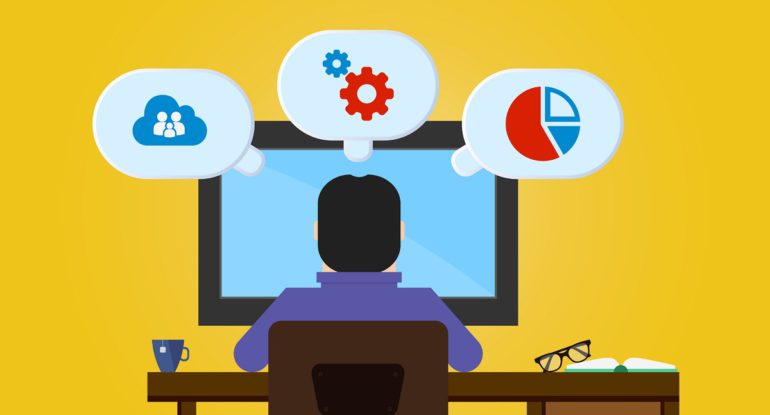Web3: The Global Village has Arrived!

The best way to deal with change is to own it.
It was in the mid-1990s when we got our first dial-up modem that I came across the concept of the Global Village. Originally suggested by Martin McLuan in the 1960s, the general idea was technology would connect us, reducing the distances between individuals, and bringing the different corners of the globe closer together. Like a village. And when that little off-white box arrived, it felt like the dream was becoming a reality. But it didn’t, did it?
I know, I sound like a grumpy old ingrate but bear with me on this.
It’s true, we are connected. Yes, we have access to our friends and family. I know, we can call up songs, videos, and books from before we were born in the blink of an eye. And, we can order a pizza, taxi, or new underwear at the touch of a button, but… BUT, we are NOT a village. In fact, I suggest to you that we are as disconnected from our fellow human beings as we were in the early 1990s, IF NOT MORE SO.
Why?
We are disconnected because as we went online we were digitally hoovered up by the entrepreneurs of the day. We think we are connected to our friends and family, but actually, we are connected to Facebook, Google Mail, Apple Photos, and Zoom. We think we are connected to dozens of merchants, taxis, and rental apartments, but actually, we are doing business with Amazon, Uber, and Airbnb. And don’t get me started on workflow tools like PipeDrive and LinkedIn. We have been siloed. Bucketed. Boxed. Packaged. We have been duped into mammoth sales funnels that not only strip us of our wealth but limit our visibility of world events.
I don’t really blame those early entrepreneurs, nor do I begrudge them their financial rewards. They have shown us what is possible. It’s the execution that was wonky. I mean, let’s be honest, V1.0 products and services, whether digital or physical, usually suck. Right?
And now we have a real challenge ahead of us.
Machine Learning and Artificial Intelligence are coming. In fact, it’s here already, but it’s going to get so much better at the commercial activity for those leviathan tech companies because they have all these huge buckets of data about our lives.
I actually believe ML and AI can bring huge benefits to humanity. Please, strip the politicians of decisions about fixing roads and supporting schools. These are budgeting decisions, mathematics, and politics have nothing to do with it. Put an AI in charge of budgeting. Get an AI to check defense spending in the US, China, Russia, Europe, and elsewhere. Let’s stop the leaky sides that fail to hold taxpayers’ money. Please!
But when it comes to commercial activity, we absolutely have to safeguard ourselves from the power of computers to analyze our spending habits. If they are “ordered” to squeeze an extra 0.5% from us each year that is what they will do. Sure, it may not be at the retail end, it could be at the production end, driving another generation of already poor people into ever more desperate living conditions. Whichever way it goes, it is not right. You and I both know that.
So, what are we to do?
This is where Web3 comes in.
I think cryptocurrencies, like Bitcoin, have shown us the way. Not because they are “like money”, but because they give physical properties to digital things. And this is huge.
In principle, Web3 will disrupt the current tech giants by giving consumers, that’s you and me, control over our Data. This gives rise to the concept of Data Sovereignty, that our digital footprints are our individual property. What this means is, that if commercial enterprises want to advertise their products and services to you, they have to pay you for the privilege. Not LinkedIn. Not Google. You. Me. Us!
And so we return to the dream of the Global Village.
Web3 is all about linking People with People. If I sell access to a blog post, you pay me directly, not Medium. If you sell a second-hand book, summer suit, or table to someone, they will pay you directly, not eBay. There will still be structures that do the jobs of eBay, Medium, Amazon, and Facebook, but they will not be companies as we know them. They will be decentralized, open-source blockchain-based “smart contracts” that we chose to engage with and which will never “own” our data. The importance of this cannot be overstated.
Access to our data not only handed tech giants the wealth of nations but also gave them the keys to the kingdom of politics.
Enough is enough.
Web3 won’t be perfect, but it will put people back at the center of everyday commercial activity. We will no longer be data for trading and the enrichment of companies. The downside is that many people in the Western World are reliant upon the current tech structure. You need to understand if your job is about to be disrupted.
The best way to deal with change is to own it.
Author: Nick Myers
Nick Myers is an ex-teacher from the UK with 8+ years of experience in Crypto as an End User. He seeks functionality and no financial risk.




























































